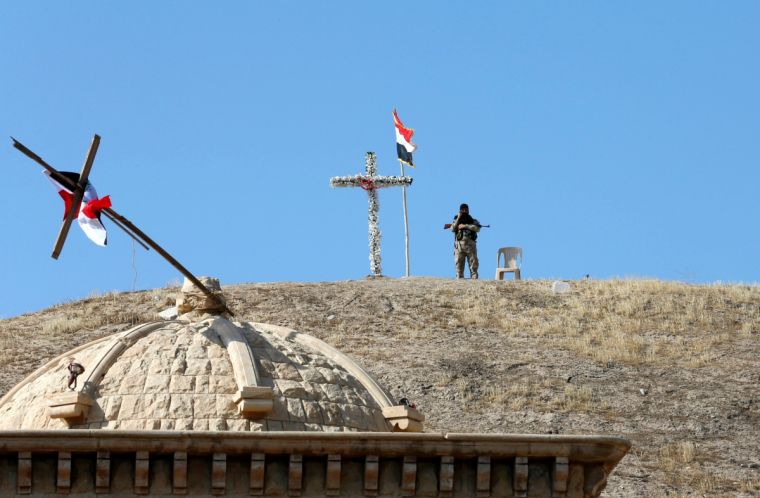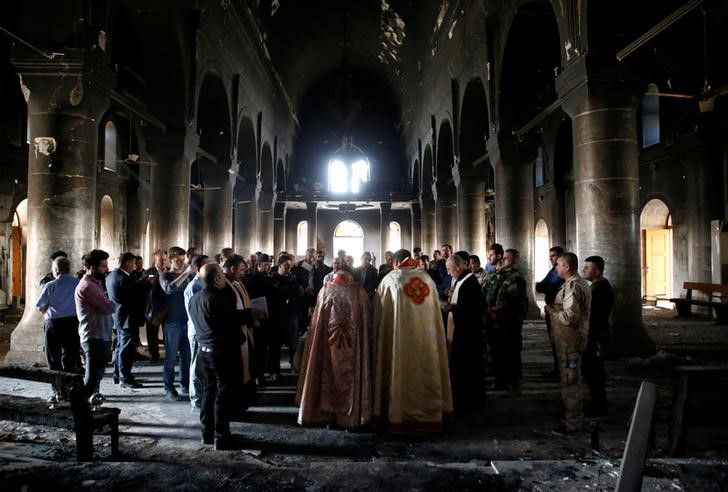Houses Burned, Churches Destroyed, And It's Still Not Safe For Christians To Return To Qaraqosh After ISIS

Just over a week since Qaraqosh was liberated from Islamic State, and the Christian-majority town is not safe enough for civilians to return home, Christian Today has been told.
Speaking from Alqosh, an Assyrian Christian town about 50km north of Mosul, a spokesperson and soldier for Christian militia the Nineveh Plain Protection Units (NPU) said that there are still a number of ISIS militants operating in Qaraqosh, who move around the town via a complex series of tunnels.
The NPU, along with the Iraqi special forces and Iraqi military, liberated Qaraqosh – also known by its Assyrian name Baghdeda – about nine days ago.
It was first overrun by Islamic State militants in August 2014, forcing tens of thousands of people, many of them Christians, to flee.
Now that the majority of ISIS militants have been forced out or killed, however, the people of Qaraqosh are still not able to return.
"The town is not 100 per cent cleared from IEDs [improvised explosive devices], or from bombs, so it is still not safe for the civilians," NPU spokesman Athra Kado said.
But the town's priests arrived on the first day of liberation, and although it's not safe for them to stay overnight, Kado added, they have returned every single day. They have rescued ancient church documents, thankfully untouched by jihadists, and yesterday held Mass for the first time in two years at the Church of the Immaculate Conception.

It's a significant moment for Assyrians in the region, who are part of an ancient branch of Christianity with roots dating back to the 1st century AD.
The NPU is one of a number of Christian militias operating in Iraq, but it is the only one to be official recognised and supported by the Iraqi government.
"After ISIS, it became one of my life goals to reach our towns, because it's like we lost with each Assyrian town [taken by ISIS] a part of our body," Kado said.
But when troops liberated Qaraqosh and other Christian towns and villages in the region, they were met with devastation.
"It was like a disaster," Kado says of Qaraqosh. "The buildings were crushed, most of the houses burned, the church was – and is – still in a very bad way. But of these two sides, happiness and sadness, it was more like happiness. We can rebuild. It's the work of hundreds of years, and ISIS came in two years and broke everything, but we can rebuild."
As towns have been liberated, images have emerged of crosses, pulled down and broken by ISIS, being raised again upon church roofs by soldiers.
Kado says this has been incredibly symbolic of the Assyrian fight for freedom, and for him it's representative of "Jesus bringing life back by the cross".
"He [Jesus] gave us freedom and freedom from sin on the cross... We are almost doing the same thing with that cross when we put it on the roof. ISIS is the sin, and the cross is stopping that sin."
It will be several months before the region is secure and Christians can return home, Kado said, but his fellow soldiers are desperate to take back their towns from ISIS.
"It [the Nineveh Plain, before ISIS] felt like the only place in the word that we were safe, but even that place was taken from us," he says. "Now, we're trying to get it back."











